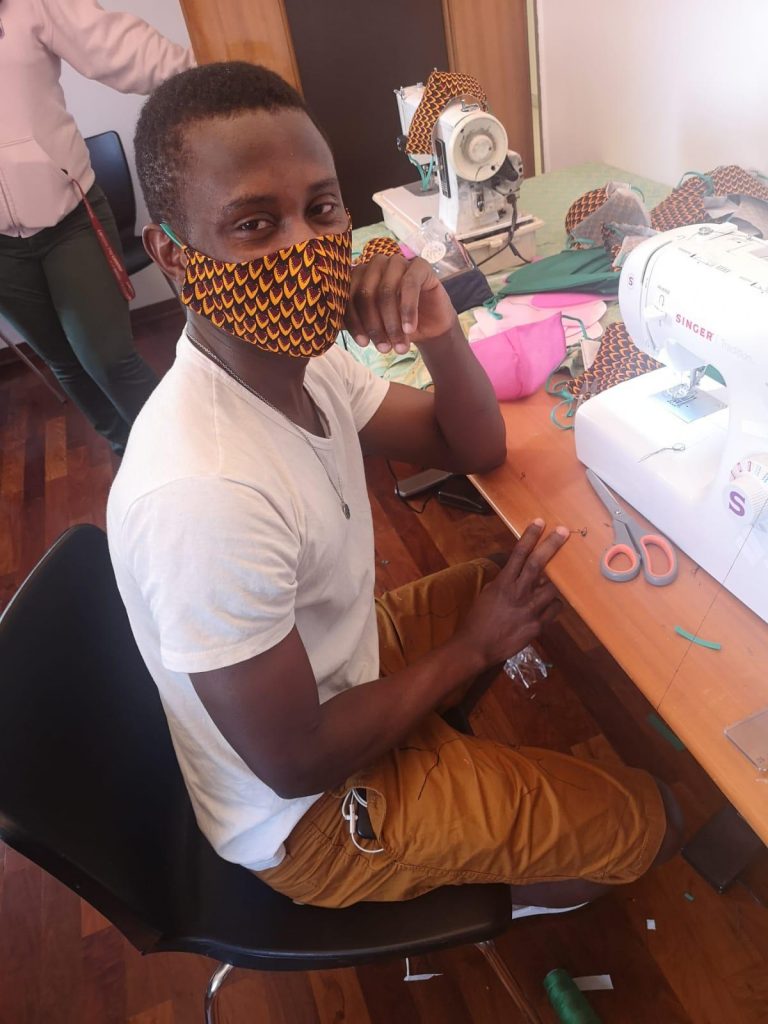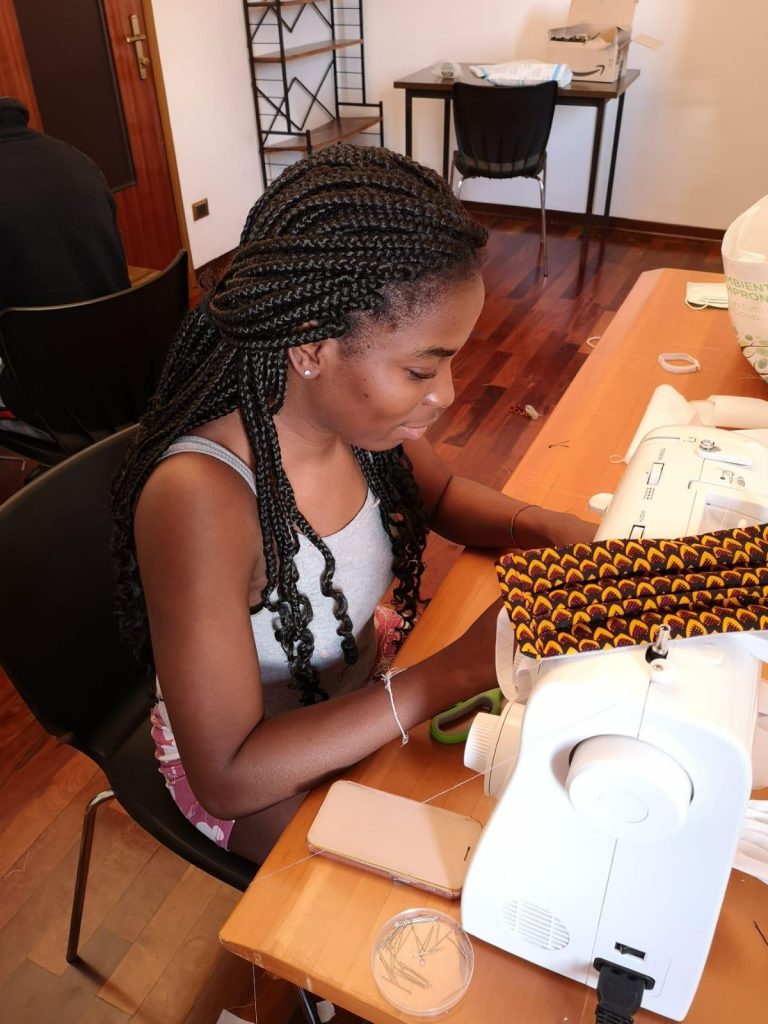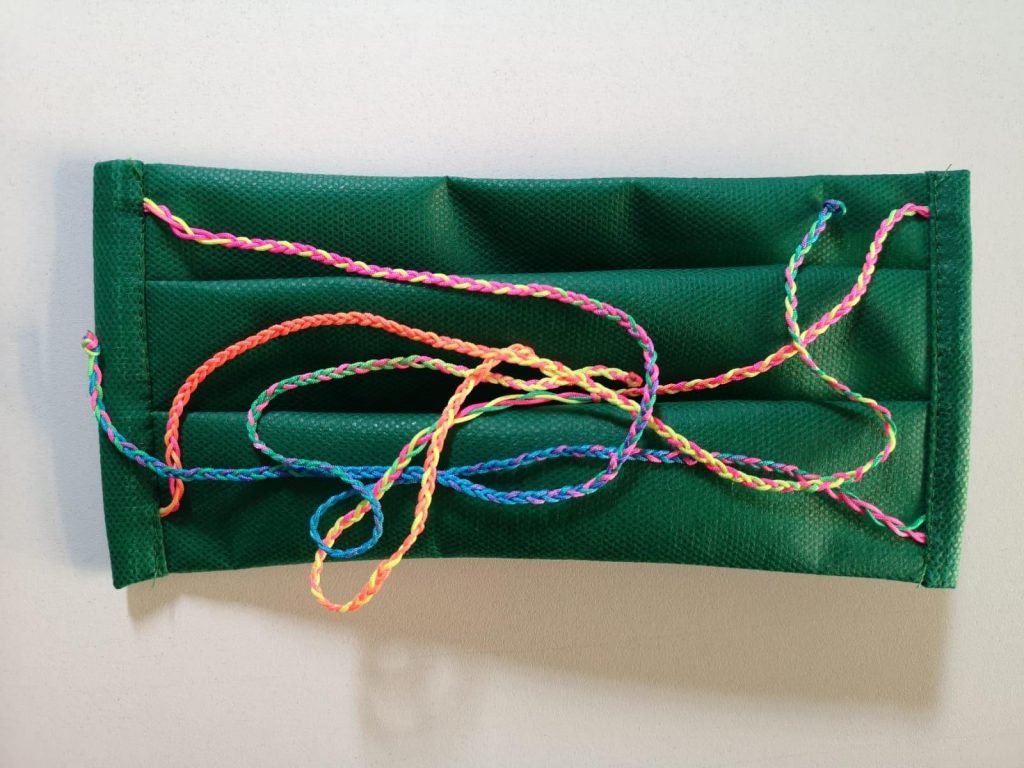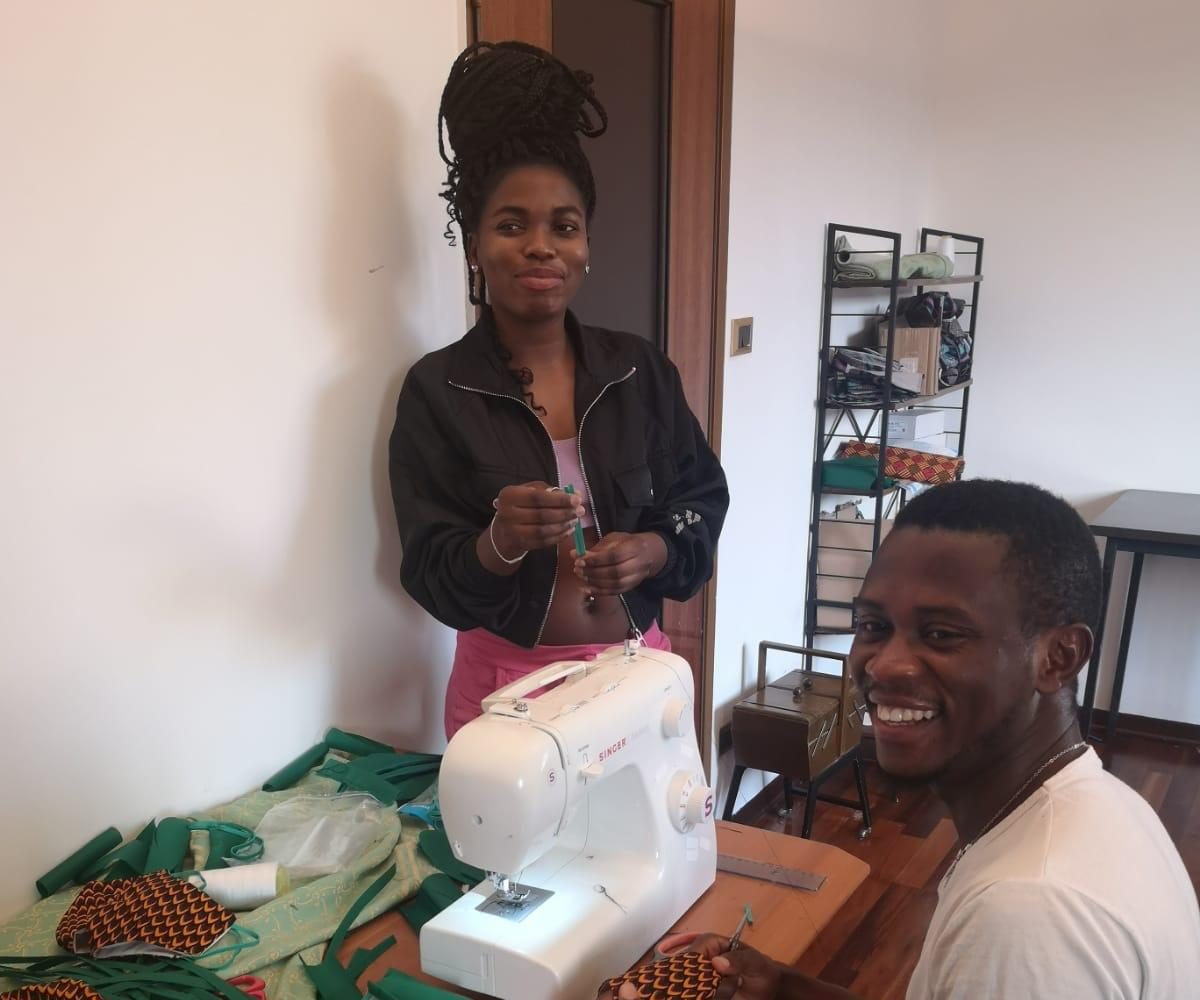Interview with Roberta Tumiatti
Cooperativa Pi.Pro., Consorzio La Valdocco
Diesis Network is highly involved in the topic of inclusion and promotion of TCN work. For instance, with the MAX project, which aims is to change the public attitude toward migrants. At the time of COVID19, many TCN are helping to fight against this crisis and we are interested in discovering their stories!
It is the case of Lamine and Osariemen, two Third Country Nationals (TCN) living in Turin (Italy), decided to create a production of masks for the operators of the cooperative that received them. Their sense of community and solidarity for the people who welcomed them gave birth to this initiative, which in a few weeks became a real success!
We had a chat with Roberta Tumiatti, President of Cooperativa Pietra Altra Servizi and Director of the Cooperative Pi.Pro., Technical Manager and Coordinator Development and Integration Projects, who told us more about this story!
Cooperativa Animazione Valdocco is part of Legacoopsociali which is part of the Diesis Network. Diesis Network wishes to promote and congratulate all these great initiative coming from the national actors of the social economy that are part of its network! In these hard times, the social economy apports a concrete help to the fight and resolution of the COVID19 crisis!
Could you introduce the cooperative in a few words?
The cooperative Pi.Pro. (Piccoli Progetti) is part of the consortium La Valdocco. It is a type B cooperative, whose main aim is the social and working inclusion of disadvantaged people. Within the cooperative, which has a small number of projects, there is ours: it is a project related to the social and work inclusion of foreign citizens seeking or holding international protection. They are citizens that we host through the Animazione Valdocco and Pietra Alta Servizi cooperatives, both part of the same consortium, within extraordinary reception centres (CAS). At the moment the project is being followed on the territory of Turin.
Could you tell us about the initiative of masks production? How was it born?
 The small projects of the cooperative, including the tailoring workshop, are developed on the basis of the skills, needs and/or interests that are brought to us by the beneficiaries of our services.
The small projects of the cooperative, including the tailoring workshop, are developed on the basis of the skills, needs and/or interests that are brought to us by the beneficiaries of our services.
We already had this project in place for another experience: the creation of shopping bags with fabrics donated by the city of Turin (for example with old banners of events in the city). Therefore, we had already started a small project activity with these beneficiaries.
The activity of the masks was born from a proposal of the beneficiaries themselves. Lamine, who is one of the two young people who are taking care of the initiative, sent me a photo of his productions of masks, proposing his personal self-production. In a context in which social workers, pressed by urgency, sometimes do not have enough masks, we immediately liked the idea. We were struggling with this need and he proposed a new product.
To start with, Lamine and his colleague Osariemen, used the available fabric to make some prototypes. The idea was good so we considered whether there was any interest from the consortium’s biggest cooperative, Animazione Valdocco. In fact, like many cooperatives at the moment, they were looking for masks to wear at work (not advanced masks but daily work masks), which could help the operators to protect themselves in proximity contexts.
Could you share with us something about the two young people who had this idea?
Lamine and Osariemen are two foreign young people who already have skills in tailoring: both had a professional course with an internship in this field and both had two professional internships before the emergency. They already have high skills acquired in their country of origin, and then received further training in Italy and started vocational training courses in this field.
How is the production of these masks organized?
Lamine and Osariemen, are both housed in the same CAS structure (extraordinary reception center), it is a collective structure that host families in the centre of Turin.
Inside the structure there was already a room used as a tailoring space. In order to guarantee the safety of everyone in the structure and the tailors, the two young people started to work in this tailoring space, not having to expose themselves to risks related to travel.
The room, thanks also to the availability of the beneficiaries who gave a common space, has become a working environment that is regularly sanitized and is used only by the two of them. Lamine and Osariemen work at a safe distance, back to back, respecting all safety regulations.
In this first phase they are working in pair, mainly for a question of space management and compliance with safety regulations; maybe in the future there will be a third person.
What kind of masks do you produce? Where do the fabrics used to produce the masks come from?
We make two types of masks: the disposable ones in non-woven fabric, and the washable and reusable ones made of wax fabric and of non-woven fabric inside.
The research of fabrics comes from the experimental spirit that is a characteristic that distinguishes us. We researched, also getting in touch with colleagues from other cooperatives who had already started similar self-production experiences, which fabrics were the best ones to use.
The fabrics used for the masks are wax fabric and non-woven fabric. The wax fabric has a double waxing which allows us to guarantee a greater protection for those who use the mask. Many wax fabrics are donated, while for the non-woven fabric we only accept intact packaging.
We have received many tissue donations offers. In this case we take care of collecting them, sanitizing them and then using them for production.
There have been some difficulties, so the mask models change over time depending on the materials available. For example, there have been problems with elastic bands which are very difficult to find at the moment: we then had to use strings intertwined with each other, or laces that tie together.
Who are the masks distributed to?
The masks are not for sale but donated to the social workers of the cooperative. For now, only to them simply because the Cooperativa Animazione Valdocco is very big, with almost 2000 members: their needs exhaust our production. For the moment, we are not able to satisfy more than this, even though we have already had several requests from outside. As soon as possible we would also like to help other realities and donate these masks.
How do you distribute the masks in accordance with safety regulations?

As soon as they are made, the masks are packed in a single envelope and sealed. They do not come out of the tailor’s shop unless they are already in this condition, and the person who makes them also bags them.
Between 50 and 100 masks are produced: once the process has been checked, the masks are collected and delivered to the consortium headquarters, where they are then distributed according to the needs of the services in the area.
What impact has this initiative had on your community?
This initiative has been a huge success, which was not entirely a surprise.
The cooperatives who are in charge of welcoming TCN, firmly believe that our beneficiaries are part of our community. We were not at all surprised that Lamine and Osariemen wanted to help us in this time of need by serving the community itself! The sense of community of these young people for their welcoming community has been remarkable.
Moreover, Lamine and Osariemen are a very precious resource: they never stop having creative ideas, every week they have a new idea or project, they keep evolving! And they put this creative talent at the disposal of their host community. Solidarity is a two-way process: this is their project for us.
Foreigners are really a resource: they have found a solution to a problem that nobody had the answer to!
What will be the next steps?
In the future, in a state of emergency, the idea would be to donate these masks also to health workers who are not part of the Cooperativa Animazione Valdocco. In time of emergency we will remain useful and supportive.
There will also be a small tutorial to teach people how to create their own masks at home. In fact, Lamine and Osariemen understand and speak Italian, and they want to transmit this knowledge and this sense of solidarity!
Maybe later, after the emergency phase, then we could think of having a commercialization of these masks. In fact, even in a hypothetical phase two, it may be useful, or even indispensable, to still have these protective masks!

